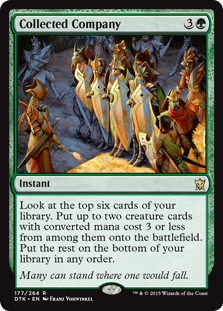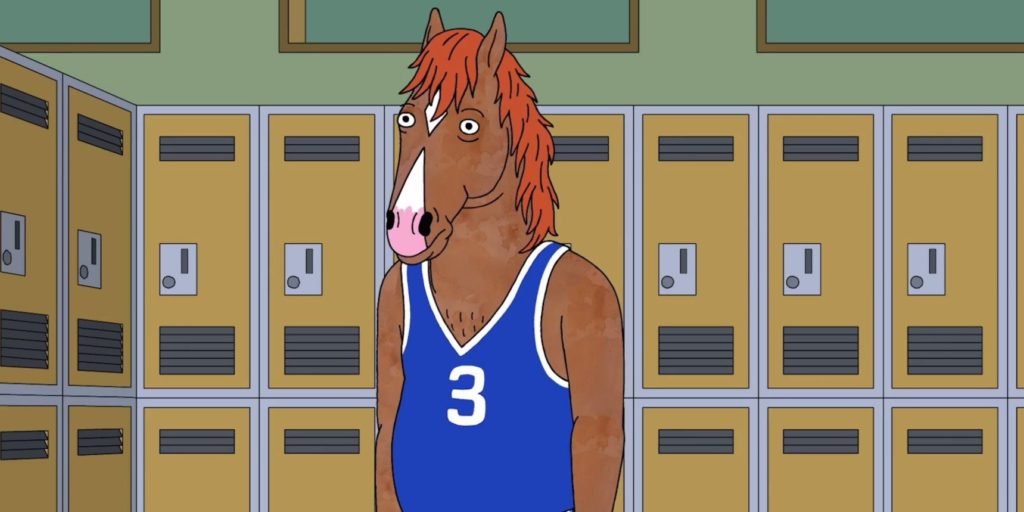You can always tell when there’s been a big Modern tournament, because suddenly everyone wants to talk about how much they hate it. Criticism of Modern is easy to make if you’ve played the format much, and even easier to find from others if you haven’t. You know the story: the games are too fast, the metagame too random, the sideboards too small.
All of those are fair critiques, but they sound more like “traits of eternal formats” than “impossible obstacles” spelling Modern’s doom. I mean, have you played Legacy? On what earth would Modern not be a format where you must play powerful cards for your first four turns? Both Legacy and Vintage have elaborate “how much dredge hate do I play” dances, etc etc. These problems are not the root of why players complain about Modern. What it really comes down to is this: You can’t prepare for everything. And that’s scary to competitive gamers.
I had a vivid nightmare once that went something like this:
I’m standing backstage in a recital hall at the Aspen Music Festival, minutes before world-renown double bassist Edgar Meyer will begin his much-anticipated recital. It’s going to be a musical highlight of the season. The air is electric. The first part of the program is a set of elaborate improvised duets for two bassists. Edgar’s bass rests on stage, on its side, and another, mere mortal’s bass lays nearby. I am not sure who is playing the second half of the duet, but who cares, because anyone who is going to play on stage with Edgar Meyer is going to be an accomplished and sensitive musician.
As I glance around the backstage area, Edgar himself bursts in, looks me straight in the eye, and says, “get your tux on!” I’m like, “what?” and wouldn’t you know, the other bassist has come up lame, and Edgar needs me to play with him. Now, I lived with three bassists back in music school, so I’m not the absolute least qualified person he could ask, but still. “I don’t know how to play the bass,” I let him know, sadly. Edgar takes in the news, staring through me with a fierceness that, had I never heard him perform, I might interpreted as a murderous rage. “Figure it out!” he commands. I have no choice, except to wake up, which I do.
Flash forward to last Saturday. It’s round six of the local Modern PPTQ. I’m running Affinity, and had started 3-0 before two tough losses led to this win-and-in for the final seat in the top eight. I win the roll, deploy an above-average first turn board, and pass. My opponent draws, plays a [casthaven]Temple of Malice[/casthaven], keeps the card on top, and passes back. I’m like, “oh no.”
I have never faced down a scry land in Modern, but I’m pretty sure the only decks that play them are looking to cast spells like [casthaven]Goryo’s Vengeance[/casthaven] or [casthaven]Ad Nauseam[/casthaven]. I beat the latter deck with Affinity at Grand Prix Oklahoma City last year, but I’ve never actually played against [casthaven]Griselbrand[/casthaven] in Modern. Sure enough, we each took two more turns, the last of which involved three Brandy Alexanders for my opponent and one game loss for me. “Not like this.” I had just lost round five to dredge, a machup where Affinity feels pretty outclassed honestly, and now I had to beat an even faster combo deck?
Alas, I did not, and finished 3-3, good enough for 13th place out of 36 thanks to my top tiebreakers. Not good enough for prize, but four of my opponents made the top eight and another finished ninth, so I got some good practice at least. And honestly, it was a lot of fun. Five of my six matches were extremely close, three-game nail biters against top local players. I made countless decisions that mattered, some on turn one and others on turn ten. I beat Hexproof, Jeskai Control, and Bant Eldrazi. I lost to Jeskai Control, Dredge, and Grixis Reanimator. I went 1-1 against Kiefers. A tough day for sure, but the kind of tough day that makes Magic such a great game.
The final game of round six was totally nuts: he ran off [casthaven]Engineered Explosives[/casthaven] into [casthaven]Engineered Explosives[/casthaven] into [casthaven]Shattering Spree[/casthaven]. I came back strong with [casthaven]Chalice of the Void[/casthaven] on two (not a common choice for Affinity, shall we say) followed by two giant [casthaven]Master of Etherium[/casthaven]. I’m not going down easily. Four [casthaven]Nourishing Shoals[/casthaven] later, a final salvo of splicing out [casthaven]Borborygmos Enraged[/casthaven] with two cards left in his library facing yet another lethal attack, I lose. World Magic Cup team USA member Lee Marino watched it all go down, riveted, after he won his neighboring match to get to 4-2. He also got the eighth spot thanks to some cascading breakers. It was riveting Magic, and I walked away happy, despite going from 3-0 to empty.
People complain that Modern is a variance format, but so what? Magic is a variance game. It’s really a narrative format. Each player brings their story to the table. You never know what you’ll face, but you blaze forward, executing your powerful gameplan, and hope for the best. I have played so many challenging, close, interactive games of Modern. Plenty of other games are lopsided or boring, but those games tend to even out. So you hone your narrative, match after match, tournament after tournament. If you play enough, eventually your story will carry the day.
Limited rewards creativity and fundamentals. Standard rewards metagame mastery and manipulation. Modern rewards experience and mastering multiple decks. And Modern truly is an accessible eternal format. You can build any of at least a dozen decks, all with cards you can acquire without too much hassle, although some decks are quite expensive. Once you can comfortably pilot two or three major decks, you can pick the best weapon for the weekend and go to battle. As Grand Prix Indianapolis demonstrated, anyone who masters a deck can have a good run and make the top eight. With dedication, your story can be the next Modern narrative.
I think Modern is great. It feels genuinely different from Limited and Standard, and brings necessary variety to competitive play. Even the best players have to get lucky to win in Modern, and that’s a good thing. Some days you run into tough matchups, or you don’t draw the right sideboard cards, or you just can’t play tightly enough to win the close games. But with hard work and relentless effort, you can be a Modern hero.
Carrie O’Hara is Editor-in-Chief of Hipsters of the Coast.




